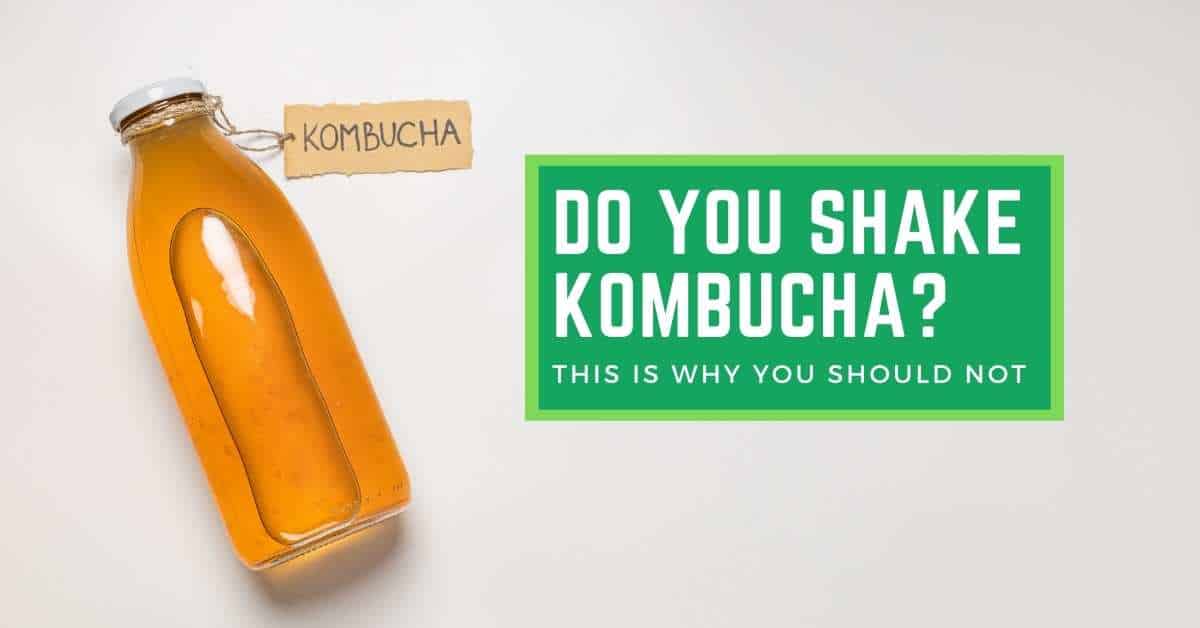Kombucha is made by fermentation of sweet tea, and it is rich in probiotics, vitamins, and minerals. Kombucha has been shown to boost the immune system, aid in digestion, and even help prevent cancer.
People who like drinking kombucha for its health benefits wonder whether it contains gluten.
The truth is that traditional kombucha is found to be a 100% gluten-free fermented beverage.
In this article, we’ll take a closer look at the gluten in kombucha and whether or not it’s safe for people with celiac disease or gluten sensitivity.
What is Gluten?
Gluten is a protein found in wheat, barley, and rye. It is what gives bread its chewy texture and helps to trap the carbon dioxide that makes bread rise.
When baking, gluten forms a that allows gas bubbles to expand evenly throughout the dough, giving baked goods their characteristic shape and texture.
Gluten is also responsible for the elastic texture of pasta. It is what allows the dough to be rolled thin without breaking and keeps pasta al dente after cooking.
If you think you may have celiac disease, it is important to see a doctor before changing your diet. Some people with celiac disease may also be allergic to oats.
For people with celiac disease, gluten triggers an immune response that damages the lining of the small intestine. This can lead to malnutrition, as the body is unable to absorb nutrients from food properly.
Gluten sensitivity is less severe than celiac disease, but it can still cause digestive issues, fatigue, and headaches.
What is Kombucha?
Hard kombucha is a type of kombucha that has been fermented for longer, resulting in an alcoholic beverage.
It is made by adding yeast or another alcohol-producing bacteria to the kombucha during the fermentation process. Hard kombuchas typically have an alcohol content of 2-8% ABV.
Hard kombucha has gained popularity in recent years as a healthier alternative to beer and wine. It is lower in sugar and calories than most alcoholic beverages and contains probiotics which may have health benefits. Some studies have also shown that hard kombucha can help improve gut health and digestion.
Can People with Celiac Disease Drink Kombucha?
Yes, people with celiac disease can drink kombucha, as long as it is a pure, unadulterated product that does not contain any gluten-containing ingredients.
If you are unsure about the ingredients in a particular brand of kombucha, always contact the manufacturer to check before you drink it.
Is Kombucha Good for People with Gluten Sensitivity?
Yes, kombucha can be a good drink for people with gluten sensitivity, as it is a fermented beverage that is naturally gluten-free.
However, as with celiac disease, some commercial brands of kombucha may add flavourings or other ingredients that do contain gluten. So, always check the label before you buy it, or contact the manufacturer to ask about the ingredients used.
The Symptoms of Gluten Intolerance
Gluten intolerance is a condition where the body cannot properly digest gluten, a protein found in wheat, rye, and barley.
People with gluten intolerance may experience a range of symptoms, including abdominal pain, bloating, diarrhea, constipation, fatigue, and headaches. In severe cases, gluten intolerance can lead to weight loss, anemia, and bone or joint pain.
If you think you may be gluten intolerant, it is important to see a doctor for a diagnosis. Gluten intolerance can be difficult to diagnose because its symptoms are similar to those of other conditions, such as irritable bowel syndrome.
A doctor can order tests to rule out other conditions and confirm a diagnosis of gluten intolerance. Treatment for gluten intolerance is a lifelong commitment to avoiding gluten-containing foods. With proper treatment, people with gluten intolerance can lead healthy, symptom-free lives.
Is Alcoholic Kombucha Gluten-Free?
Alcoholic kombucha is gluten-free. Kombucha is a fermented tea drink that has been around for centuries and is known for its probiotic benefits.
Alcoholic kombucha is made by adding yeast to the fermentation process, which creates carbonation and raises the alcohol content. While traditional kombucha is made with black tea, there are many variations of alcoholic kombucha that use different types of tea or even fruit juices.
While kombucha itself is gluten-free, some commercial brands may add ingredients that contain gluten. Be sure to check the label before purchasing to make sure that the product is truly gluten-free.
There are many delicious and refreshing gluten-free kombuchas on the market, so you can still enjoy this healthy beverage without having to worry about consuming gluten.
How to Find Out Your Kombucha is Gluten-Free?
The best way to find out if your kombucha is gluten-free is to check the label. All kombuchas are made with fermented tea, but some commercial brands may add ingredients that contain gluten.
If you are unsure about a particular ingredient, you can always contact the manufacturer to ask about its gluten content. Most kombuchas on the market are gluten-free, so you should have no problem finding one that suits your needs.
When in doubt, always err on the side of caution and consult with a doctor or dietitian if you have any questions about whether a particular food is safe for you to eat.
How to Take Kombucha in Moderation?
We all know that kombucha is a delicious and refreshing probiotic drink. But did you know that there is such a thing as hard kombucha? Hard kombucha is kombucha that has been fermented for longer, resulting in higher alcohol content.
Just like regular kombucha, hard kombucha is packed with probiotics and other health benefits. However, since it contains alcohol, it is important to consume hard kombucha in moderation.
Here are a few tips on how to enjoy hard kombucha in moderation:
1. Stick to one drink: Although hard kombucha is lower in alcohol than most beers and wines, it is still important to stick to just one drink. This will help you avoid becoming intoxicated.
2. Sip slowly: Since hard kombucha has a higher alcohol content than soft kombucha, it is important to sip it slowly. This will help you enjoy the drink without becoming too buzzed.
3. Pair it with food: Eating food will help to slow down the absorption of alcohol into your system. So, be sure to pair your hard kombucha with a meal or snack.
4. Drink responsibly: As with any alcoholic beverage, it is important to drink responsibly. This means avoiding driving or operating machinery after consuming hard kombucha.
By following these tips, you can enjoy hard kombucha in moderation and reap its many health benefits.
Final Thoughts
Kombucha is a fermented beverage made from sweet tea. It is rich in probiotics, vitamins, and minerals and has many health benefits.
Kombucha is naturally gluten-free, but some commercial brands may add flavourings or other ingredients that do contain gluten. So, always check the label before you buy it, or contact the manufacturer to ask about the ingredients used.
People with celiac disease or gluten sensitivity can drink kombucha, as long as it is a pure, unadulterated product that does not contain any gluten-containing ingredients.
Frequently Asked Questions Related to Kombucha And Gluten
1. Is all kombucha gluten-free?
Not all kombucha is gluten-free. While some brands may use ingredients that are naturally gluten-free, such as green or black tea, others may use ingredients that contain gluten. Be sure to check the label of your favourite kombucha brand to see if it is truly gluten-free.
2. Does kombucha help celiac disease?
Some people with the celiac disease say that kombucha helps improve their digestion. Kombucha is a probiotic drink, and probiotics are known to help improve the digestion of some foods.
So it’s possible that kombucha may help some people with celiac disease digest gluten better. However, there is no scientific evidence to support this claim.
3. Is JuneShine hard kombucha gluten-free?
JuneShine hard kombucha is gluten-free. The brewing and fermentation process eliminates gluten from the final product.
However, because all kombucha is made with a SCOBY (the Symbiotic Colony of Bacteria and Yeast), there is always a very small risk of cross-contamination.
If you have Celiac disease or any other gluten sensitivities, we recommend that you consult your doctor before drinking JuneShine hard kombucha.












